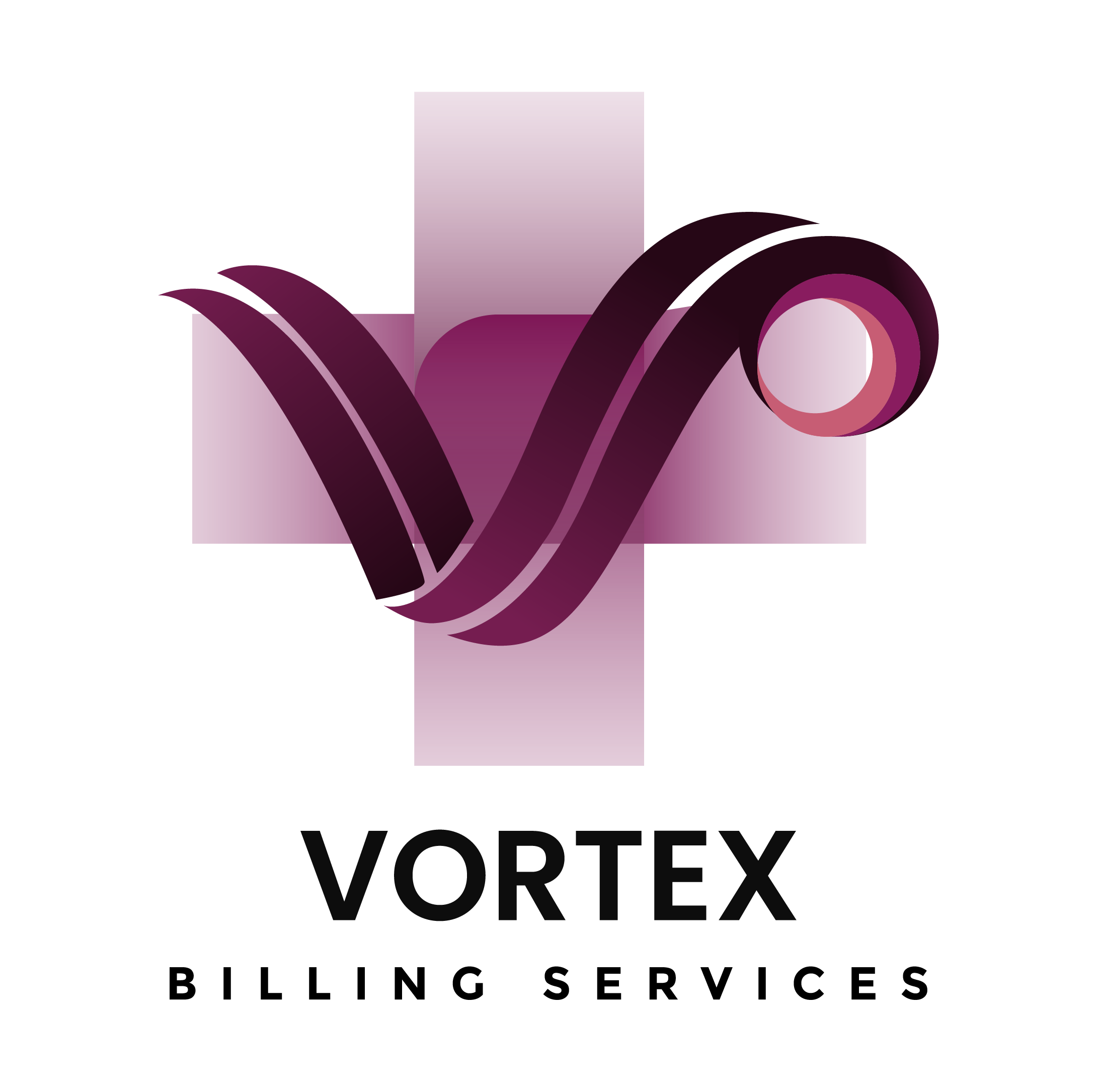Top 5 Revenue Cycle Management Challenges in Behavioral Health Billing
Behavioral health billing in the USA presents a unique set of challenges that can cripple even the most well-intentioned healthcare providers. From ever-changing payer rules to compliance headaches and high denial rates, revenue cycle management (RCM) is often a minefield. So, what are the top 5 RCM challenges in behavioral health billing? Let’s dive in and uncover the hurdles and how to overcome them. Whether you’re a clinic, private practice, or large provider network, understanding these issues is critical to optimizing your cash flow and delivering uninterrupted care.
Introduction to Behavioral Health Billing
What is Behavioral Health Billing?
Behavioral health billing refers to the specialized process of submitting claims and receiving reimbursement for mental health and substance abuse treatment services. Unlike general medical billing, behavioral health involves nuanced and complex rules that vary across insurers, states, and even service types. Providers must document patient interactions accurately, code services correctly using CPT/HCPCS codes, and comply with a host of federal and state regulations. It includes billing for therapy sessions, psychiatric evaluations, medication management, and teletherapy.
The billing process must also align with treatment plans, clinical notes, and patient diagnoses, often under the scrutiny of payers looking to minimize costs. For behavioral health practices, the risk of rejected claims, delayed payments, or compliance violations is significantly higher than in other areas of healthcare. That’s why mastering the intricacies of behavioral health billing is not just an administrative concern—it’s a business necessity.
Why Revenue Cycle Management is Critical in Behavioral Health
Revenue Cycle Management (RCM) is the backbone of financial health in behavioral health practices. It includes the entire billing process—from patient scheduling and intake to claim submission, denial management, and final reimbursement. Behavioral health providers operate under tight reimbursement rates and increased demand for services. Missing out on timely payments due to flawed RCM processes can quickly spiral into staffing issues, service cutbacks, or even closures.
Unlike other specialties, mental health providers often deal with variable session lengths, group therapy billing, and limits on reimbursable services. Each of these elements adds layers of complexity. Poor RCM practices can result in underpayments, legal exposure, or patient dissatisfaction due to billing errors. With the healthcare landscape evolving rapidly, especially after the rise of telehealth, having a streamlined RCM process is not just important—it’s non-negotiable.
Challenge #1: Complex and Inconsistent Documentation
The Impact of Poor Documentation on Claims
Documentation is the lifeblood of behavioral health billing. Yet, many providers fall short when it comes to detailed, consistent, and compliant clinical notes. Incomplete or vague documentation leads to denied or underpaid claims. Payers demand medical necessity proof, and behavioral health services must be clearly tied to a diagnosis and treatment plan.
For instance, missing session dates, incorrect time durations, or failure to align notes with coded services are all red flags for payers. These errors can lead to pre-payment reviews, audits, or claw backs. Worse yet, it increases staff workload as they scramble to correct and resubmit claims—often resulting in delayed payments.
Documentation Standards in Behavioral Health
Behavioral health documentation must include:
- Patient’s diagnosis aligned with DSM-5 codes
- Clinical justification for each service provided
- Treatment goals and progress toward those goals
- Session length, modality, and provider credentials
- Signatures and timestamps
But here’s the rub—many behavioral health providers juggle heavy caseloads and spend limited time documenting sessions. Using standardized templates within Electronic Health Records (EHRs), real-time note-taking, and ongoing staff training can significantly improve documentation quality and ensure billing success. Regular internal audits also help catch recurring documentation issues before payers do.
Challenge #2: Ever-Changing Payer Requirements
Navigating Insurance Payer Policies
Payer rules for behavioral health billing are anything but consistent. What Blue Cross approves might be rejected by Aetna. Medicare may require different documentation than Medicaid. And the kicker? These policies change frequently, sometimes without clear communication to providers.
Behavioral health providers must stay on top of:
- Session limits per year or per diagnosis
- Accepted service codes and modifiers
- Covered treatment types (individual, group, telehealth)
- Credentialing requirements for providers
Failure to adhere to payer-specific rules often results in claim denials. For example, some insurers won’t reimburse for teletherapy unless video was used—even if audio-only was medically appropriate. Others may cap weekly sessions without prior authorization. Staying current means constant payer policy reviews, subscription to insurer newsletters, and using billing software with integrated payer rule libraries.
Dealing with Pre-Authorizations and Medical Necessity
Pre-authorization is the gatekeeper of behavioral health billing—and it’s often a bottleneck. Many services require prior approval before treatment begins. Providers must submit detailed clinical rationales and wait days or weeks for approval. Any oversight in this process means the claim is dead on arrival.
Moreover, insurers scrutinize medical necessity for behavioral health more than other specialties. Vague notes like “patient seems better” won’t cut it. Detailed evidence of improvement or decline, adherence to the treatment plan, and measurable outcomes are key. Providers should use evidence-based screening tools and structured note formats to back their claims and speed up approvals.
Challenge #3: High Denial Rates
Common Reasons for Claim Denials
Behavioral health claims face a staggering denial rate compared to other healthcare services. Some studies suggest 15-20% of behavioral health claims are initially denied. Why? Here are the usual suspects:
- Missing or incorrect patient demographics
- Improper coding (especially time-based or group therapy)
- Incomplete or vague clinical documentation
- No prior authorization or expired approvals
- Lack of credentialing with the payer
These denials don’t just delay revenue—they strain administrative resources. Staff must investigate the issue, correct the error, resubmit the claim, and often appeal the decision. It’s a time-consuming process that can reduce overall collections by 10-20% if not managed proactively.
How to Reduce Denials in Behavioral Health Billing
Reducing denials starts with prevention. Best practices include:
- Automating eligibility checks before appointments
- Using RCM software with denial analytics
- Regularly updating billing codes and payer rules
- Conducting internal audits and training
Another pro tip? Establish a feedback loop between clinicians and billing staff. If certain denials occur repeatedly due to documentation errors, the billing team should educate providers in real time. Also, creating a payer-specific billing checklist can dramatically cut down on preventable denials.
Challenge #4: Compliance with Mental Health Regulations
Understanding HIPAA, CMS, and State-Level Rules
In behavioral health billing, compliance isn’t optional—it’s a mandate. Providers in the USA must adhere to several overlapping regulations, including HIPAA (Health Insurance Portability and Accountability Act), CMS (Centers for Medicare & Medicaid Services) rules, and state-specific laws. Each comes with its own set of requirements around data privacy, recordkeeping, billing, and reimbursement.
HIPAA, for example, mandates the secure handling of patient information. Behavioral health records often contain sensitive personal narratives, making them even more protected under the law. A single breach or mishandled piece of data can result in fines, lawsuits, and damage to your practice’s reputation.
Then there’s CMS, which governs billing practices for Medicare and Medicaid. Providers must meet stringent documentation and coding criteria to receive payments. CMS also changes billing rules periodically, and failing to keep up can put your reimbursements at risk.
State laws complicate things further. Some states require additional licensing for behavioral health professionals, limit the types of services covered, or enforce unique consent protocols for treatment. For multi-state practices, this regulatory patchwork can be overwhelming without dedicated compliance oversight.
How Non-Compliance Affects Your Revenue
Non-compliance in behavioral health billing doesn’t just risk penalties—it disrupts cash flow. For instance:
- Claims submitted without proper disclosures or consents may be outright denied.
- Billing for non-covered services due to misinterpreting state rules can trigger payer audits.
- Inaccurate reporting of treatment sessions may lead to overpayments and subsequent claw backs.
More seriously, repeated non-compliance can get a provider blacklisted by insurers, effectively cutting off a major revenue stream. To avoid these consequences, behavioral health practices should implement a proactive compliance plan. This includes regular staff training, staying current on policy updates, conducting quarterly internal audits, and using secure billing platforms that ensure HIPAA compliance at every step.
Partnering with a billing service that specializes in behavioral health can also offload the regulatory burden, letting your practice focus on what matters most—patient care.
Challenge #5: Integration of Technology in RCM
EHR Compatibility and Billing Software
Technology has revolutionized healthcare, but for behavioral health billing, it’s still a work in progress. Many mental health practices struggle with Electronic Health Records (EHR) that don’t fully integrate with their billing systems. This lack of compatibility causes issues such as:
- Duplicate data entry
- Missed or incorrect codes
- Disjointed workflows
- Gaps in documentation
These inefficiencies don’t just slow down billing—they increase the risk of errors, denials, and compliance violations. Behavioral health services often require more nuanced data entry—like session time tracking or therapeutic goals—which some generic EHR systems aren’t built to handle.
Moreover, if the billing team can’t access accurate clinical notes in real time, they may submit incomplete or inaccurate claims. That’s why choosing an EHR system tailored for behavioral health is critical. It should allow seamless scheduling, documentation, coding, and claim generation in one place.
Benefits and Challenges of Automation
Automation in behavioral health billing can be a game-changer—but only when implemented correctly. Automated systems can handle:
- Eligibility verification
- Claims scrubbing and submission
- Denial tracking and management
- Patient invoicing and payment reminders
This improves accuracy, speeds up collections, and reduces overhead. For example, automating eligibility checks before appointments can prevent wasted time on patients whose services won’t be reimbursed. Similarly, using automated denial tracking tools helps staff prioritize appeals more effectively.
However, automation has its downsides too. If not properly configured, it can generate mass errors. For example, auto-populated fields might apply the wrong CPT codes across claims. And not all behavioral health services fit into clean, templated structures—especially for providers offering holistic or integrated care.
Ultimately, a hybrid approach works best: automate repetitive tasks, but keep human oversight for documentation and claims requiring interpretation or special handling.
Strategies to Overcome These Challenges
Invest in Staff Training and Education
Your behavioral health billing process is only as strong as your team. Unfortunately, many providers treat billing as a back-office task rather than a core strategic function. This leads to undertrained staff, outdated processes, and a reactive rather than proactive billing approach.
Staff training is essential for:
- Understanding current CPT/ICD-10 codes
- Learning payer-specific requirements
- Navigating billing software tools
- Documenting medical necessity correctly
Frequent changes in insurance rules, state laws, and coding standards demand ongoing education—not just one-time training. Holding quarterly workshops, subscribing to billing newsletters, and investing in certifications for your billing team can pay huge dividends.
Behavioral health billing is filled with gray areas, and empowering staff with the knowledge to handle them ensures better compliance, fewer denials, and faster reimbursements. Additionally, training your clinical staff to write notes that support billing codes can create a smooth handoff between care and payment.
Choose the Right Billing Partner or Solution
For many practices, the best strategy isn’t internal—it’s external. Partnering with a specialized behavioral health billing service can help overcome most of the top RCM challenges. A great partner brings:
- Expertise in behavioral health regulations and payer policies
- Integrated technology solutions that reduce manual work
- Real-time analytics and reporting for financial visibility
- A dedicated denial management team
When evaluating a billing partner, look for these qualities:
- Experience with behavioral health and substance abuse billing
- Transparent pricing with no hidden fees
- Compliance with HIPAA and data security standards
- Scalable solutions for growing practices
The goal isn’t just to outsource billing, but to gain a strategic ally who helps your practice stay financially healthy while you focus on clinical care.
The Role of Outsourced RCM Services
Benefits of Outsourcing Behavioral Health Billing
Outsourcing behavioral health billing is becoming increasingly popular among medical practices and clinics in the USA—and for good reason. By handing off revenue cycle management (RCM) tasks to experts, providers can free up time, reduce errors, and improve cash flow. Behavioral health billing isn’t a one-size-fits-all process. It’s full of nuances, from unique codes to payer-specific requirements, making it especially suitable for outsourcing to specialized professionals.
Key benefits include:
- Expertise and Accuracy: Third-party RCM companies understand the ins and outs of behavioral health billing. They keep up with regulatory updates, changing codes, and payer requirements—so you don’t have to.
- Improved Cash Flow: With fewer denials, quicker resubmissions, and real-time analytics, outsourced billing helps practices get paid faster.
- Reduced Overhead: No need to hire, train, or manage an in-house billing team. This lowers administrative costs significantly.
- Focus on Patient Care: Clinicians and staff can dedicate more time to care delivery rather than stressing over billing issues.
Outsourced services also bring the advantage of data-driven insights. These companies typically offer dashboards, key performance indicators (KPIs), and detailed reports to show where your money is coming from—and where it’s getting stuck.
What to Look for in a Billing Partner
Choosing the right billing partner is crucial. Not every company that offers RCM services is equipped to handle the complexity of behavioral health billing. You need a partner who speaks your language and understands your pain points.
Here’s what to prioritize:
- Behavioral Health Specialization: Generalist billing firms often miss nuances specific to mental health services. Look for a provider that handles psychiatry, therapy, substance abuse, and telehealth billing.
- Transparent Pricing: Avoid firms with vague fee structures. Look for flat-rate or percentage-based pricing with no hidden costs.
- Compliance Assurance: Make sure the provider is HIPAA-compliant, uses secure data transmission protocols, and conducts regular audits.
- Technology Integration: Your partner should seamlessly integrate with your EHR or practice management software.
- Customer Support: You want a team that’s responsive, communicative, and provides a dedicated account manager—not a faceless ticketing system.
Ultimately, the goal is to find a billing partner who doesn’t just handle transactions but actively supports your practice’s growth and compliance goals.
Real-World Case Study: A Behavioral Health Clinic’s RCM Transformation
Problem
A mid-sized behavioral health clinic in Texas was facing major financial strain. They had a 28% claim denial rate, delays in payment averaging over 45 days, and burnout among administrative staff. Their in-house billing team struggled to keep up with payer policy changes and often lacked the documentation needed to support reimbursement claims.
The result? Revenue losses, increased patient complaints, and staff turnover.
Solution
The clinic decided to outsource their behavioral health billing to a technology-driven RCM service provider. The partner implemented:
- Real-time insurance eligibility verification
- Automated claims scrubbing and submission tools
- Denial analytics and appeal management
- Weekly training sessions for clinicians on documentation best practices
- Integrated reporting dashboard to track KPIs like clean claim rate and average days in A/R
They also helped migrate the clinic’s data to a behavioral health-specific EHR system that improved documentation workflows and coding accuracy.
Outcome
Within six months, the clinic saw dramatic improvements:
- Denial rate dropped from 28% to 8%
- Average payment time reduced to 21 days
- Monthly collections increased by 34%
- Staff satisfaction improved due to reduced workload and clearer documentation guidelines
This transformation not only stabilized their finances but also allowed the clinic to expand services, including teletherapy for rural patients—a feature previously difficult to bill correctly.
The key takeaway? Strategic investment in the right billing partner and technology pays off—both financially and operationally.
Future of Behavioral Health Billing in the USA
Telehealth and Digital Health Impacts
The rapid rise of telehealth has permanently changed behavioral health billing. During the COVID-19 pandemic, many payers temporarily relaxed their rules to allow broader use of teletherapy. Now, as those policies evolve into long-term standards, practices must adapt.
Telehealth billing introduces new challenges:
- Some payers require specific place-of-service codes or modifiers for teletherapy.
- Audio-only sessions may not be reimbursed by all insurers.
- Licensing laws for cross-state practice can impact reimbursement.
However, it also opens doors for expanded access, especially in underserved areas. Providers must update their billing protocols, patient consent forms, and documentation practices to comply with the latest telehealth regulations. Staying informed is no longer optional—it’s essential to remain competitive and compliant.
Policy and Technology Trends Shaping the Future
Several trends are poised to reshape behavioral health billing:
- Value-Based Care: Payers are shifting from fee-for-service to value-based models. This means reimbursement will increasingly depend on patient outcomes, not just services rendered.
- AI-Powered RCM Tools: Artificial intelligence and machine learning are being used to predict denials, flag documentation gaps, and suggest optimal codes.
- Patient-Centered Billing: Expect more transparency, flexible payment plans, and self-service portals that let patients track bills and make payments online.
- National Behavioral Health Reforms: Legislative pushes are being made to improve access to mental health services and reduce administrative burdens, which could simplify billing in the long run.
Practices that embrace these changes proactively will be better positioned to thrive in an evolving healthcare landscape.
Conclusion
Behavioral health billing in the USA is a labyrinth of complexities—ever-changing payer rules, unique documentation standards, high denial rates, compliance hurdles, and the need for sophisticated technology. But with the right strategies and partners, these challenges can be transformed into opportunities.
Whether you’re a solo therapist or managing a large mental health clinic, mastering revenue cycle management isn’t just about getting paid—it’s about sustaining your practice and serving your community. By staying educated, investing in the right tools, and seeking expert support when needed, you can future-proof your behavioral health billing process and secure the financial stability your patients rely on.



